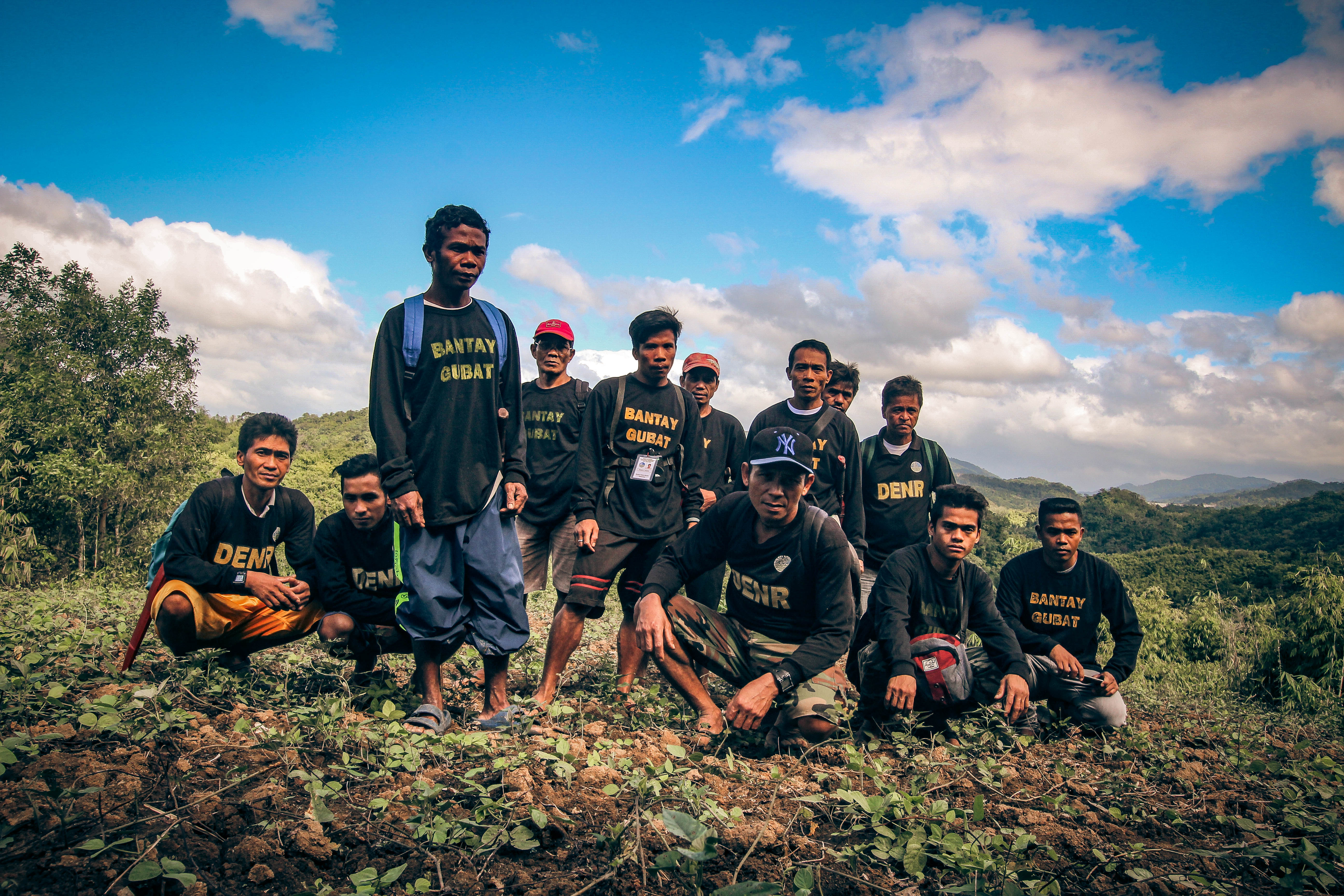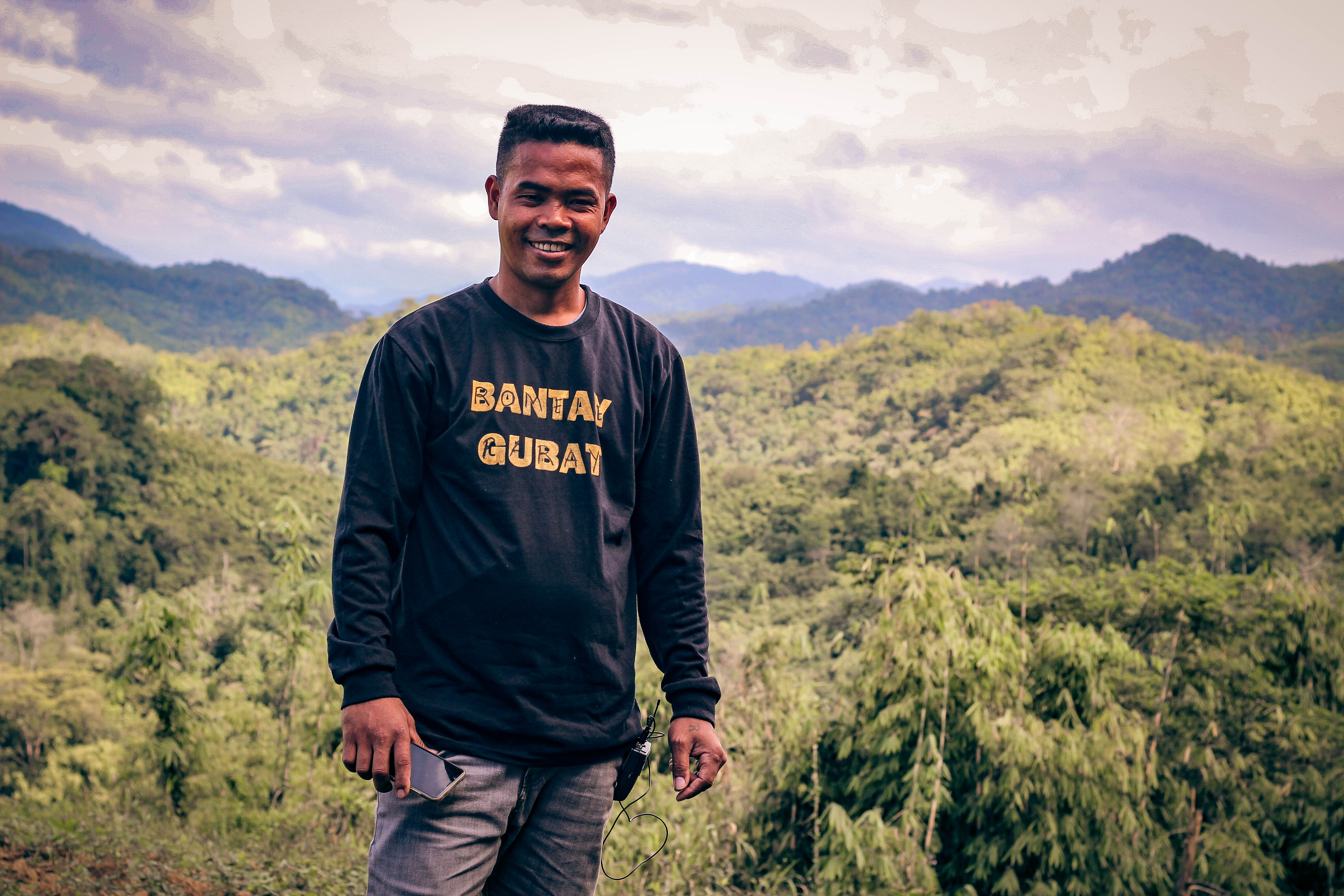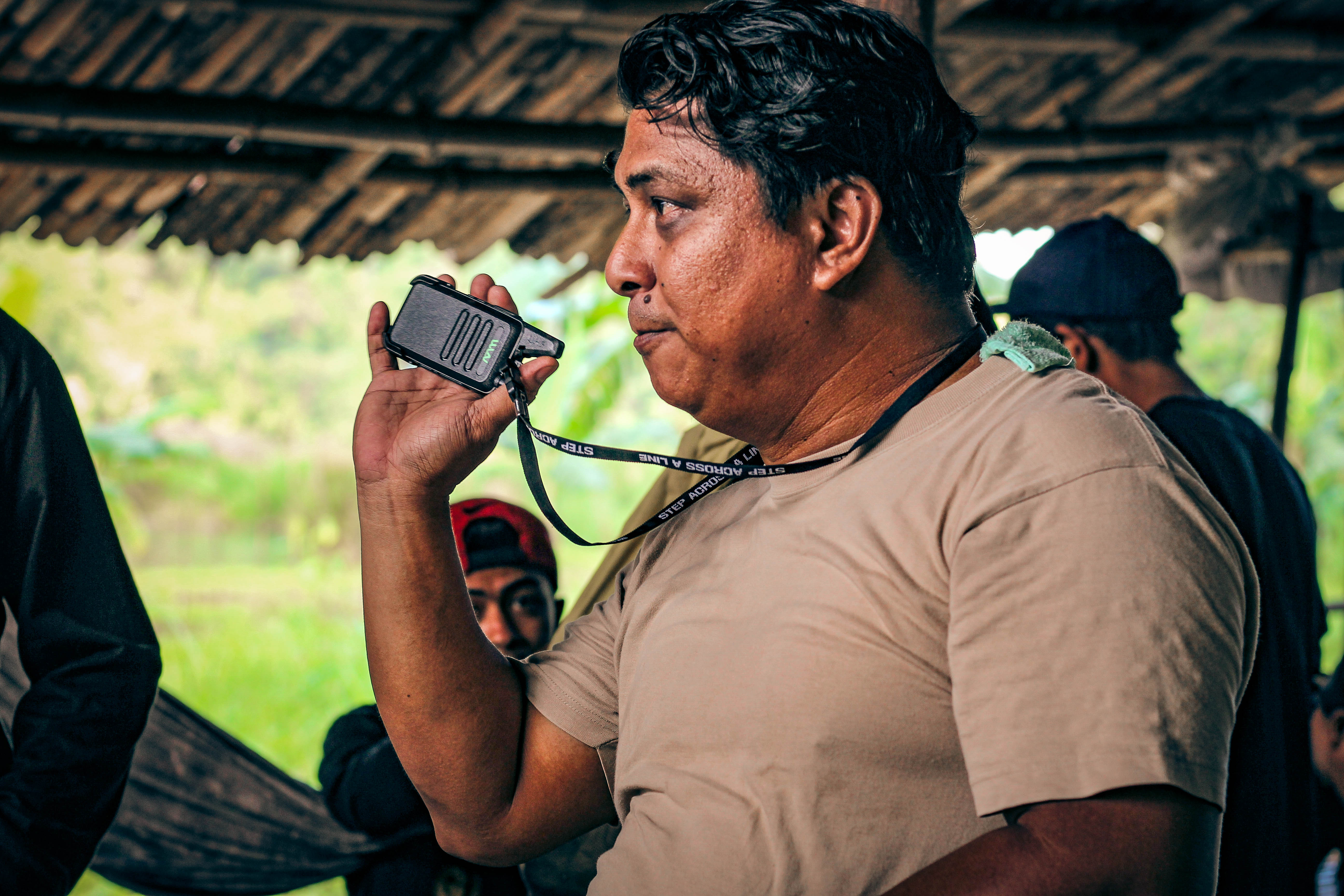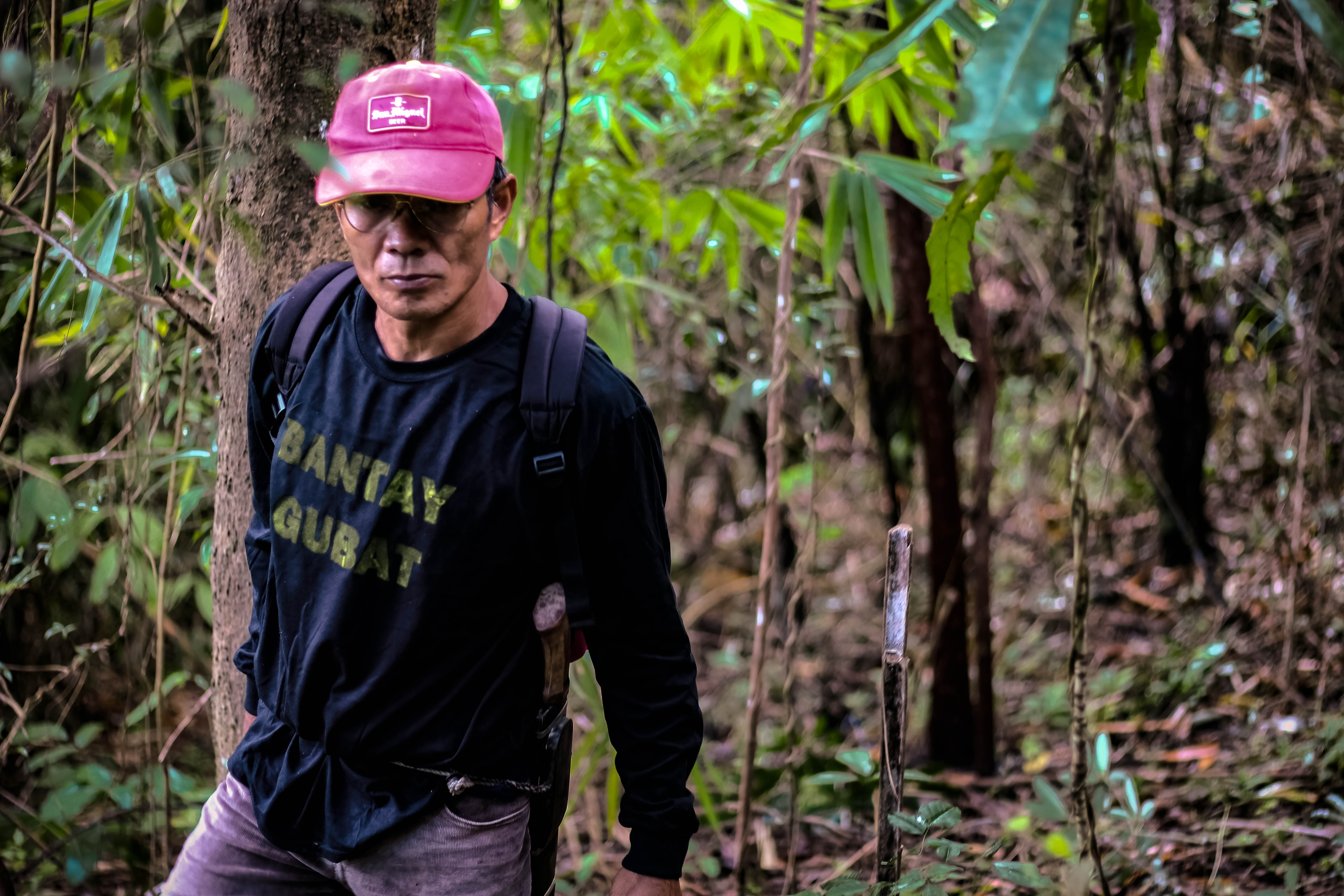Humble Heroes: Supporting the Bantay Gubat Rangers of the Ipo Watershed
January 2019

Rangers from Team Kamagong sit atop a plateau in the foothills of the Ipo Watershed. Photograph © Alo Lantin / WWF-Philippines
Troops of hardy heroes guard the forests and waters of Ipo Watershed. Theirs is a rough job, and a vital one.
Patrolling the slopes and mountain paths surrounding Ipo Dam in Bulacan Province is a team of forest rangers. Known as the Bantay Gubat, or Forest Watchers, their job is to protect the watershed against illegal activities. There are 173 Bantay Gubat rangers in total, most coming from the Dumagat indigenous peoples group who find home in sitios that dot the surrounding forest. Split into 7 teams, they patrol 6,600 hectares of rainforest, facing week-long patrols, constant rain for much of the year and conflict with offenders seeking to profit off the watershed’s natural wealth.

Team Kamagong leader Romel Paray stands in front of the vibrant forests he works to protect. Photograph © Alo Lantin / WWF-Philippines
Aside from being keepers of the law, the Bantay Gubat rangers help in the conservation of Ipo Watershed. They monitor the forest as they go about on their patrols, clearing out invasive plants and assisting in the growth of trees and the reforestation of areas previously cleared, by illegal activities or natural calamity.
“This green area here before was all bald,” describes Romel Paray, Team Leader of Bantay Gubat Team 1, nicknamed Team Kamagong, referring to a patch of forest upstream from the dam. Prior to the launch of the Bantay Gubat program in 2013, indigenous groups sought income out of activities such as timber poaching, kaingin (slash and burn farming), and the production of charcoal. This prompted the development of the Bantay Gubat program.
“Before the Bantay Gubat program, the people here did not have work, so they had no choice but to do these illegal activities,” explains Paray. The ranger program, says Paray, gave them an opportunity to work near their homes without causing harm to the surrounding forest. “Instead of leaving the forests to find work – we don’t know anything about work out there – we are able to stay here as Bantay Gubat rangers.”

Durtheo Gianan, Project Coordinator for the Ipo Watershed, holds up one of the walkie talkies used by the park rangers. Among their only sources of communication, the walkie talkies have limited range and insufficient battery lives for longer patrols. Photograph © Alo Lantin / WWF-Philippines
Supporting our Forest Rangers
Ipo Watershed, a rainforest area, endures almost daily showers for more than half a year on end. This is a problem for a roving Bantay Gubat troupe, explains Paray.
“When it rains, it floods, and it’s hard to pass through the rivers,” says Paray. “We’ve been working in the forest for a long time so we know the routes to take, but it’s a problem when it rains because the path gets slippery.”
The constant rain is a bigger problem when troupes have to spend a night in the forest. Lacking proper tents, the rangers craft makeshift shelters out of the surrounding foliage, binding together giant leaves to sleep under. “We make a roof for ourselves when it rains, otherwise the rain would fall on us. It’d be a big help if we had tents,” continues Paray.
There are times, adds Paray, when patrols last as long as a week. During these times, he says, there are times when their equipment, such as their cellphones, run out of battery. Their equipment is for geotagging pictures as pieces of evidence and points of interest on their patrols, while allowing patrols to communicate between one another and with the headquarters of the Bantay Gubat. Without them, the rangers are unable to effectively do their jobs.

A park ranger roves the forests of Ipo Watershed. The work of a Bantay Gubat includes monitoring and improving the state of the forest. Photograph © Alo Lantin / WWF-Philippines
Protecting Our Wellbeing
The work of the Bantay Gubat stops not at the conservation of Ipo Watershed, but at water security for the people of Metro Manila.
“Almost 18 million people rely on the watershed,” reminds Manny Cruz, Head of the Bantay Gubat Program. Ipo and the surrounding Angat-Umiray-Ipo Watershed supplies 98% of the water that goes to Metro Manila. Were it not for the Bantay Gubat, explains Cruz, there would be problems with water security in the metropolis down the river.
From June to August of 2018, a series of typhoon events led to the disruption of water services and subsequent shortages throughout much of Metro Manila caused by deforestation in Ipo Watershed that resulted in the contamination of the cities’ biggest water source – precisely what the Bantay Gubat rangers are working hard to reverse.
“Metro Manila is the one that benefits from Ipo Watershed,” continues Cruz. “Maybe the people of Manila don’t know that we are the ones who look out for and watch over the watershed.”
As experienced as they may be with traversing the forests, the Bantay Gubat rangers are still in need of assistance in order for them to effectively monitor and protect the Ipo Watershed. Their jobs provide them a source of sustainable livelihood while keeping Metro Manila’s largest water source secure. Hidden away in the forests of Bulacan, they are the humble heroes that help support our lives. And they need our support, too.
Learn more about how you can support our forest rangers here.
For more information, please contact:
Communications & Media Manager Mr. Dan Ramirez (dramirez@wwf.org.ph)
